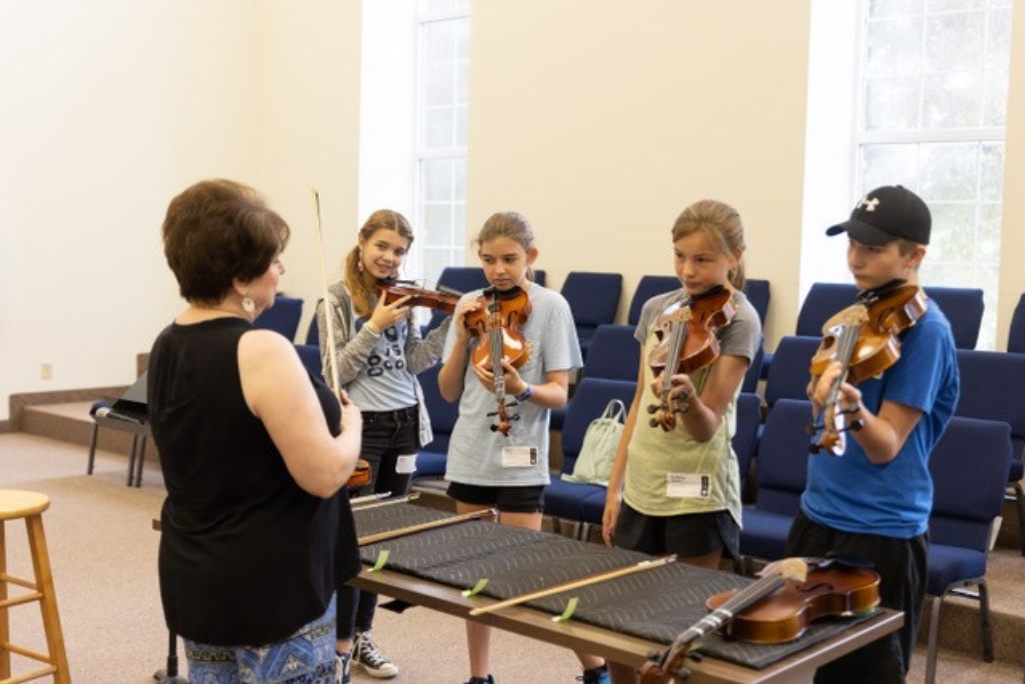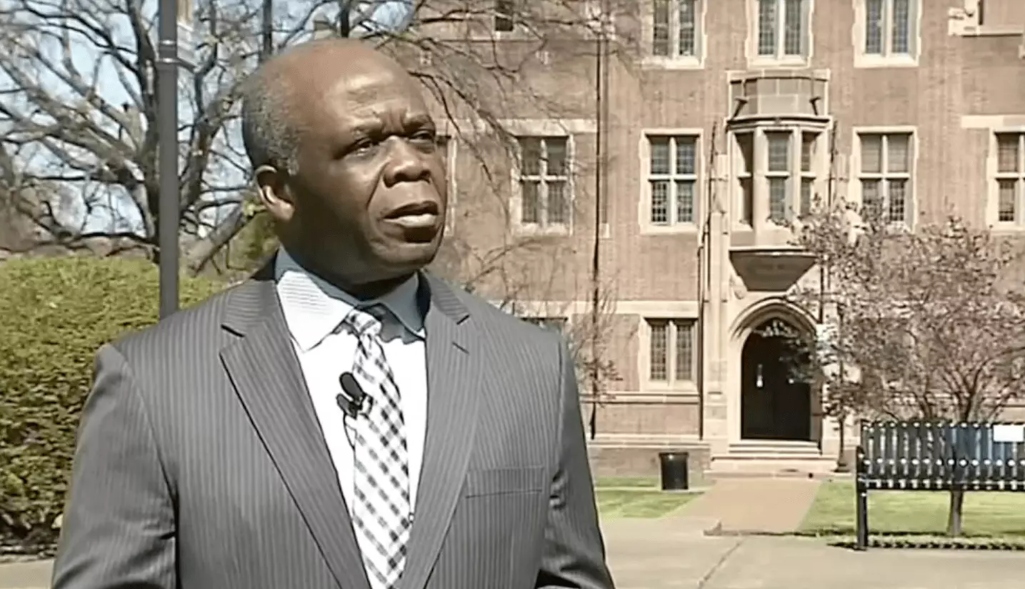
Danny James, center, believes it's crucial to the future of worship to get kids musically active at a young age.
Worship pastor Danny James wants to foster the next generation of worship leaders by showing them they have a role—and maybe an instrument—to play.
Gillionville Baptist Church, where James serves, has implemented several new ways for people of all ages, from 3-year-olds to senior adults, to be involved in worship.
“My goal is to include all people in the church body. … People [think that] you have to be a certain age or of certain ability to participate in worship,” James said. “I felt the Lord leading me to develop what’s in front of me. It’s just stewardship. We are always looking at what we don’t have instead of what we do have.”
One example is James’ reimagining of the church’s children’s choir.
“We had a diminishing kids choir,” he said. “[The kids] didn’t want to go, and I used to be one of those kids. I created a program called Drum, Strum, Hum to create an opportunity for kids who hadn’t had the opportunity to learn how to play hand drums, ukulele AND singing.
“This includes 3-year-olds through high school age kids. [They learn by] shadowing and hands-on experience. For example, a third grader would shadow a more experienced fifth grader. They learn how to run lights, set up mics, etc.
“I am really including high schoolers because when I became [a] worship leader, the high schoolers stood to the side while adults worshipped. We always explain the ‘why’ to them and help them develop that for themselves. We are here to worship the Lord whether we are holding a broom to sweep the stage or a microphone. [High schoolers] are crucial. I am trying to help, even my son, who has developed musically, understand that you’ve got to pass on what you know. [I] think [with] kingdom-minded margins so that [these] high schoolers can lead worship when they go to college.”

Kids at Gillionville Baptist Church in Albany, Ga., are frequently presented opportunities to try their hand at various instruments—from violins, to accordions to trombones.
James invests one-on-one too with would be worshippers and worship leaders.
“I make myself available on Thursday afternoons [to teach] lessons for people who want to get more practice and really get good at their craft,” he said. “Adults who have always wanted to learn come too; it’s open to everyone. I tell them that it’s all about discipleship and passing on what you know, you need to be thinking about teaching kids and grandkids.”
Using Psalm 34:1 (“I will extol the Lord at all times”) as inspiration, James tries to provide spiritual guidance as well music instruction.
“Worship isn’t just on Sunday morning, standing on a platform,” he said. “It’s 24/7. It’s not compartmentalized; it’s a lifestyle. It’s a platform, not a stage, and it’s every day of our life.”
To pull off a scheme like this, it takes a village, James said. One way others got involved was through his Dust Off or Donate program.
“I thought, ‘OK, church family, you have instruments in your closets that you’re not using,’ he said. “Some of them are not wanting to learn [how to play it], so they donate it. I’ve gotten everything from accordions to trombones. [It involves] creating relationships and communicating needs with local music stores, universities, etc., and serving them. I’ll bring them lunch and get to know them. We take [the donations] and spread them out in different directions. We are trying to spark interest in children, especially in the arts.”
There is an increasing lack of worship leaders in the state of Georgia, James said, and he hopes that programs like ‘Drum, Strum, Hum’ and ‘Dust Off or Donate’ will help alleviate that by starting the learning process at a young age. His church has seen the mighty impact of multigenerational worship. “I’m trusting not only God’s will but His timing. [This must] happen throughout the community.” James said.
“We have to start diversifying how we approach our methods. If we are one-dimensional, that will kill a church, especially a music ministry. Let’s be flexible. Let’s make the only non-negotiable the theology that we are singing. We can worship without a guitar and drums, we don’t need those things. This reminds me of Acts 16. Paul and Silas were not in an ideal situation, but they said, ‘Our situation doesn’t matter if we choose to praise God.’”
(EDITOR’S NOTE – Madison Burnette is a writer for Baptist Press.)


